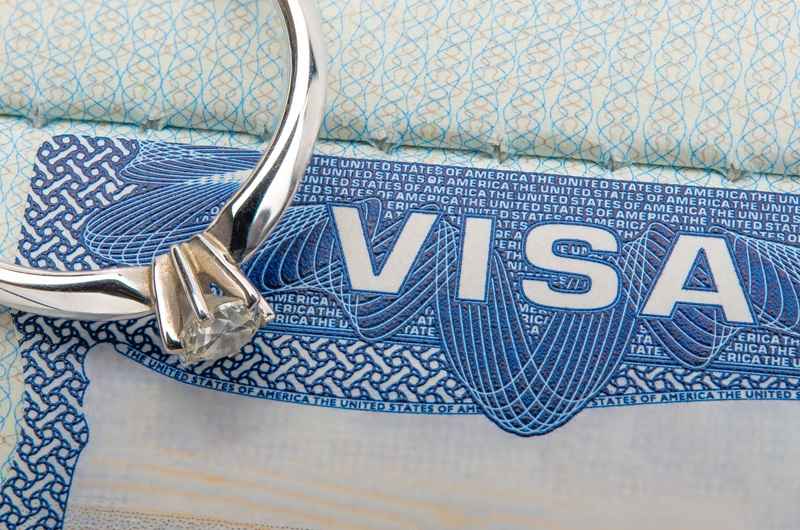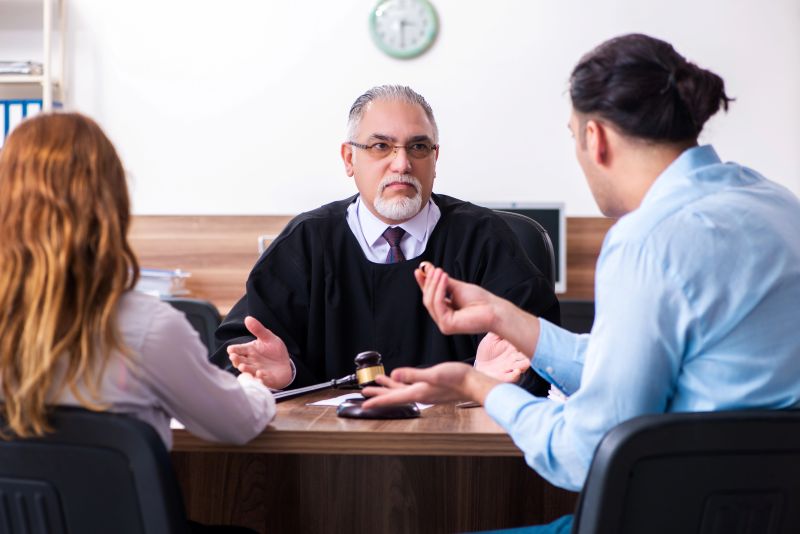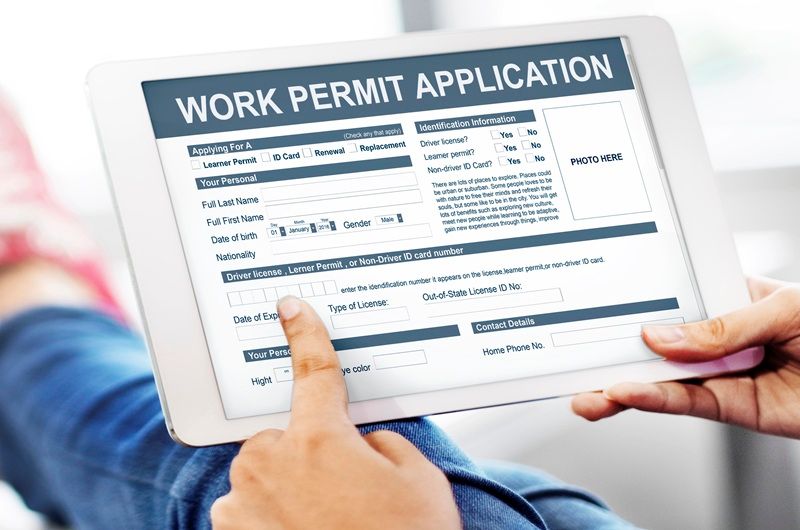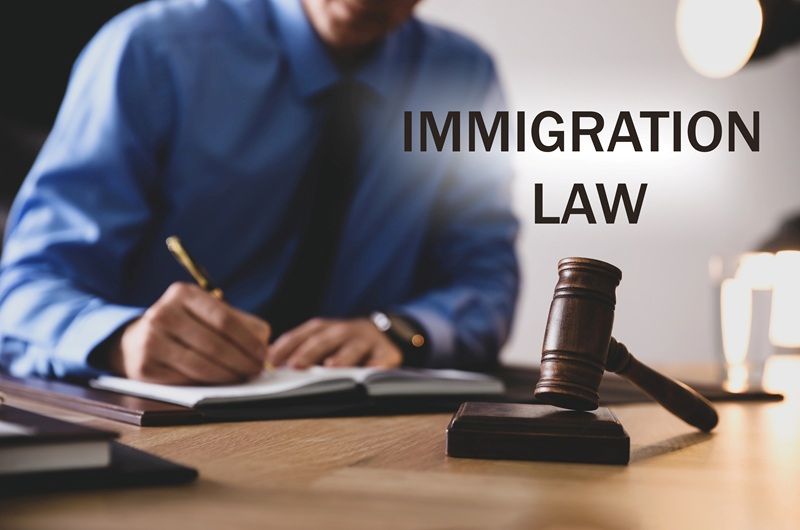
Can You Obtain A Fiancé Visa Without An In-Person Meeting?
For many couples, love defies borders, but immigration rules can add unexpected hurdles. One of the most common questions for those pursuing a fiancé Visa is whether an in-person meeting is required. Understanding the legal requirements and potential exceptions is essential for couples looking to settle in Fort Worth.
This article explains the in-person meeting rule and the exceptions available. It also discusses how Fort Worth Immigration Lawyers can help achieve a successful outcome.

Understanding The In-Person Meeting Requirement
The fiancé Visa, officially known as the K-1 Visa, allows U.S. citizens to bring their foreign fiancé to the United States. This Visa facilitates marriage and family unification, offering 90 days for the couple to marry after the fiancé arrives. For many, the process begins with a personal meeting to prove the authenticity of their relationship.
USCIS typically requires evidence of at least one in-person meeting within the two years before filing the petition. This meeting helps confirm the relationship’s legitimacy and reduces the risk of fraudulent applications. For most couples, meeting in person naturally fits into their relationship timeline.
However, certain personal, cultural, or financial circumstances may prevent this. The in-person requirement protects the immigration system by ensuring that relationships are genuine and based on serious commitment.
Although this rule applies to most applicants, USCIS recognizes that some couples may face barriers that prevent them from meeting face-to-face. For those in this situation, exceptions to the rule provide alternative pathways.
The next section explores these exceptions, offering insight into how couples may still qualify for a fiancé Visa without meeting in person.
Knowing The Exceptions To The In-Person Meeting
USCIS allows exceptions to the in-person meeting rule for couples facing unique situations. Waivers are available for those with cultural or religious customs or when the U.S. citizen petitioner experiences extreme hardship. Proper preparation helps ensure a smoother process and better results.
Some cultures and religions prohibit couples from meeting before marriage. In these cases, USCIS permits waiver requests with proper documentation. Letters from religious leaders or community officials help demonstrate the validity of this custom.
Extreme hardship, such as serious health conditions or financial difficulties, may also justify waiving the meeting requirement. For example, if a petitioner cannot travel due to illness or the fiancé lives in a country with travel restrictions, USCIS may approve the waiver.
Although financial hardship is more difficult to prove, it may qualify if it significantly affects the petitioner’s ability to meet their fiancé. Thorough documentation is key to success. USCIS evaluates each case individually, and strong supporting evidence improves the chances of approval.
After determining eligibility for an exception, couples can move forward with the application. Submitting Form I-129F with a well-prepared waiver request is the next step toward obtaining a fiancé Visa.
Applying For A Fiancé Visa Without Meeting In Person
Applying for a fiancé Visa without an in-person meeting begins with submitting Form I-129F, Petition for Alien Fiancé. This form initiates the Visa process and allows you to request a waiver of the in-person meeting requirement.
Along with Form I-129F, couples must include a written waiver request explaining why they could not meet. Supporting documents strengthen this request. Letters from religious leaders, medical records, and detailed personal statements help demonstrate the circumstances preventing travel or meetings.
Additional evidence, such as communication logs, video call screenshots, and affidavits from family or friends, reinforces the relationship’s legitimacy. Accuracy and thoroughness are critical when preparing these documents. Missing or incomplete information can lead to delays or denials.
Couples who submit well-prepared petitions improve their chances of approval. USCIS carefully reviews each waiver request and supporting documents before deciding whether the couple meets the criteria for an exception.
Although applying without an in-person meeting can be viable, challenges may arise during the process. Addressing these obstacles can help ensure a smoother experience and avoid unnecessary delays. Understanding the difficulties and how to handle them can make a significant difference in the outcome of the application.
Facing Potential Challenges & Overcoming Them
Applying for a fiancé Visa without an in-person meeting can be challenging, especially when proving the relationship’s legitimacy. USCIS may deny petitions if the supporting documents are incomplete or the waiver request lacks a clear explanation. A common reason for denial is failing to show that the relationship is genuine and ongoing.
Couples should collect detailed evidence of their relationship. Phone records, video call logs, and message exchanges help demonstrate ongoing communication. Photos from virtual meetings and even canceled travel plans can provide additional proof. Affidavits from friends, family, or community leaders add credibility and show third-party confirmation of the relationship.
Proving extreme hardship presents another obstacle. Medical documents, financial statements, or letters from religious leaders help validate why meeting in person wasn’t possible. Couples with cultural or religious restrictions should obtain statements from community leaders explaining the situation.
Preparing a well-documented petition reduces the risk of delays or denials. Legal assistance addresses all requirements for couples needing extra support. Fort Worth Immigration Lawyers can help couples build strong, persuasive cases to improve their chances of approval.
Working Fort Worth Immigration Lawyers For A Smooth Process
At Fort Worth Immigration Lawyers, we understand the emotional and legal challenges of fiancé Visa applications. Our team guides couples through each step, handling their case with care. We assist in preparing documents and filing waiver requests for those unable to meet in person.
We review every detail to help strengthen the application and increase the chances of approval. We also tailor our approach to fit each couple’s unique needs, addressing cultural, religious, or hardship-related barriers. Our goal is to present a strong case that meets USCIS standards.
Couples receive personalized attention and legal support throughout the process. With Fort Worth Immigration Lawyers, couples can focus on their future together while we handle the legal complexities.
Obtaining a fiancé Visa without an in-person meeting is possible for couples facing cultural, religious, or hardship-related obstacles. Documenting and proving eligibility for a waiver is key to approval. This article highlights the steps involved, common challenges, and how couples can strengthen their applications.
At Fort Worth Immigration Lawyers, we help couples gather evidence, complete forms, and address USCIS requirements. Our team works to make the process smoother, allowing couples to focus on their future. For those seeking to start their life together in Texas, our legal team provides vital support throughout the fiancé Visa journey.
Share this article
Table Of Contents
Latest articles
January 20, 2026
January 20, 2026
January 20, 2026
Categories





